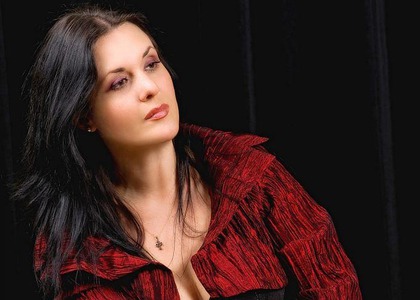> [Archived] Interviews

Interview with pianist Raluca Știrbăț
The George Enescu Philharmonic Symphony Orchestra will perform two concerts on Thursday and Friday, April 4th and 5th respectively, conducted by Leo Hussain, principal guest conductor. On this occasion, you will be able to see pianist Raluca Știrbăț as soloist. The musician gives us more details about her return to the Romanian Athenaeum in a dialogue with Ioana Țintea.
Mrs. Raluca Știrbăț, in the concerts at the Romanian Athenaeum you will perform perhaps the best known concert work dedicated to the piano, Edvard Grieg's Concerto in A minor. Is there a particular significance in the choice of this work?
You're absolutely right! I used to say that there are, I think, three concertos for which pianists or children approach the piano instrument: Tchaikovsky's Concerto, Beethoven's Imperial and Grieg's Concerto in A minor. They are extremely beloved and well-known concertos.
There is no particular significance for me now. I simply love this concert. I've been meaning to perform it in public for a while and other priorities have come up, but now it's time.
What can audiences discover when they listen to this "hit" of piano literature, as this concert is considered?
It's a very interesting question you pose. I think we could talk for a few hours, me at least, on this subject... these hit or slam concerts precisely because they are so beautiful and so touched by a brilliant inspiration are very well known and very loved. Just as everyone is good at politics and football, I think that, in the same way, every music lover "knows" Grieg's Concertos, Tchaikovsky's and Beethoven's Imperial.
Well, this is where the great, but I think very beautiful, most challenging and interesting difficulty of the performer arises, to rediscover the score. I tell you quite honestly that when I started studying this concert, actually with the score in front of me, with the composer's message in front of me, I had some minor or major shocks about the contrast between the message in the score and what our ears are usually used to hearing.
That's what I'm going to try to do, to start from the message of the score, from what I think and imagine based on what I know, what I've accumulated over a lifetime, what I think the composer's message is, and, of course, that something extra, personal, that each of us comes up with and hopes to reach the soul of those in the audience.
What memories bind you to this opus?
They will be the first memories, because the concerts on Thursday and Friday with the "George Enescu" Philharmonic Orchestra in Bucharest will be the premiere for me with this concert, after which, on the 19th of April, I will also perform it in Iași, with the "Moldova" Philharmonic.
Memories link me... As I said, it's a concert I've been listening to since I was a child in concert halls and not only, on the famous interpretations. I'm thinking here, first of all, of Dinu Lipatti, but also of others, of Shura Cherkassky, I discovered Emil Gilels, for example; I discovered many absolutely brilliant renditions of this concert, which are perhaps not as well known as they deserve to be.
Have you had the opportunity to collaborate with the conductor Leo Hussain?
No. And this will be a first. I hope we'll get on very well, I'm sure. I think what I'm doing is very, very logical. The orchestra and the conductor are dreaming, so to speak, the concert... so I think there won't be any problems. I can't wait for the concerts!
What does the stage of the George Enescu Philharmonic mean to you?
It's a temple! It's a sacred temple for me and not only for me, but for any musician, first of all Romanian, but not only. It is a very special atmosphere. It is always a joy and an honour to play here. This stage has the power to bring out the best in a musician, assuming of course that he has been diligent, has done his job and is very well prepared. Well, this scene gives you some extra wings you may not even suspect. The audience is always extraordinarily warm. From what I understand, it's going to be packed. We're very happy! I know people have come from all over the country to hear us.
And, yes, I have a lot of great memories. I'm thinking of the Tchaikovsky concert with Cristian Mandeal a few years ago. The same with the Paul Constantinescu Concerto that we played here. The Moskowski Concerto... yes, these are beautiful and important memories for me.
Translated by Miruna-Gabriela Flipache,
University of Bucharest, Faculty of Foreign Languages and Literatures, MTTLC, year I
Corrected by Silvia Petrescu














